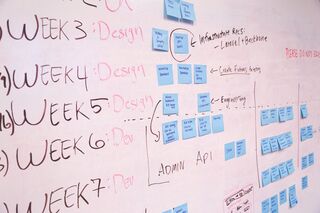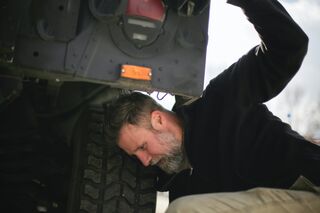Stress
Positively Stressed?
Making the shift to a positive stress mindset.
Posted September 28, 2020

When we stop to think about it, stress has gotten a really bad rap. For most of us, when we think of stress, there is an immediate association with responsibilities, deadlines, and a lack of control. We are then overtaken by that racy feeling, some light-headedness, and maybe even some tightness in the chest area. We smile and nod during conversations with family, friends, and colleagues, as our minds have landed somewhere in a galaxy far, far away ...
We are also well aware of the effects of chronic stress on the body, so if it isn’t enough to be zipping around like gerbils on crack, we now have to worry about high blood pressure, heart disease, and maybe even a stroke. Now our stress has stress.
What is also somewhat ironic is that many people who seek out stress reduction consultation are often looking to enhance their tolerance to stress. They are looking to take on even more and do it even better.

This is largely due to the many messages we have received from the ground up. We learned early on during middle school health class that chronic stress kills ... as well as how to put a condom on a banana. Also, in our society, workaholism is rewarded. We are expected to burn the candle at both ends and smile while we’re doing it. Then, we go home to our kids and role model how to be human-doings rather than human-beings.
What we need to do is the opposite. When we begin to feel racy and overwhelmed is a good time to take a walk while also listening to the dialogue going on in our heads. In essence, we need to reduce our tolerance to stress.
We need to learn to hack away at the inessentials every day.
Another big change we need to make is to shift our perception of what stress is. Stress is wanting the present moment to be something other than it is.

Think about this. When we get a flat tire we immediately react, as we are on our way to work, school, a date, or to pick up the kids. There is usually no good time to get a flat. Also, someone may stop to help who is a creeper, or the opposite, no one stops to help. Then, the worries start about the expense and how we will get to work tomorrow. None of this is actually about the tire. It’s about wanting this moment to be something other than it is. The reacting, the worry, and the catastrophizing help nothing. Neither does dropping the f-bomb. Acceptance does.
Another important piece to making this shift is to change how we think about stressors, such as the pressure at work or school to produce, deadlines with projects or coursework, expectations on sports teams, etc. Rather than get all caught up in the raciness and what if thinking that accompany these stressors, we can instead realize that stressors bring our attention to what we care about, what is important to us. Once we realize this truth, it can be a total game-changer.
Next, we can learn to change our words, as words carry a lot of weight. Rather than run that feedback loop through our heads about that project we have to get done by Friday, instead swap out have for want. I want to work on that project that is due Friday. Or, if you can muster it up, tell yourself, “I am excited to work on the project that is due Friday.”

Lastly, learn to step out of the hamster wheel and take a time-out. This is important when those around you are talking about how busy and stressed they are, as it is all too easy for this to rub off and stick a pin in your happy-bubble. Find a reason to excuse yourself for just a moment, breathe deeply, and remind yourself that you do not need to breathe in the stress of others like secondhand smoke.
The last any of us knew, life is not a dress-rehearsal. Now is the time to make the shift to a positive stress mindset.


